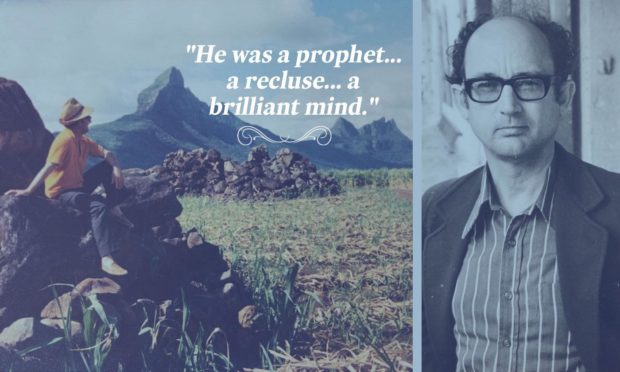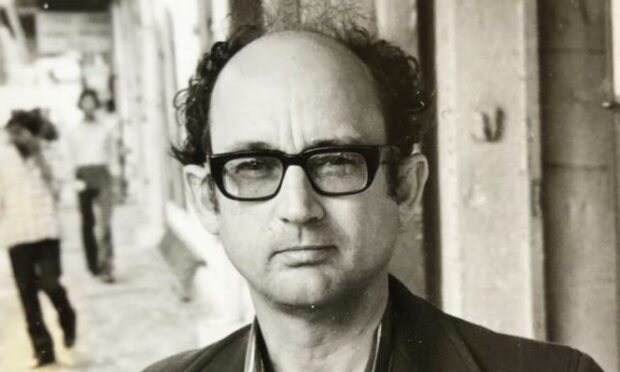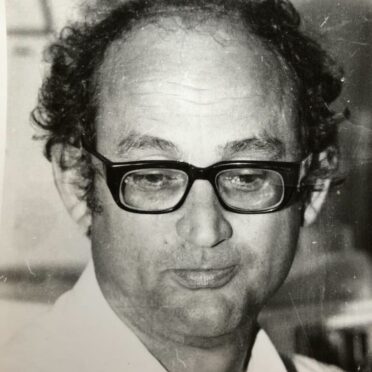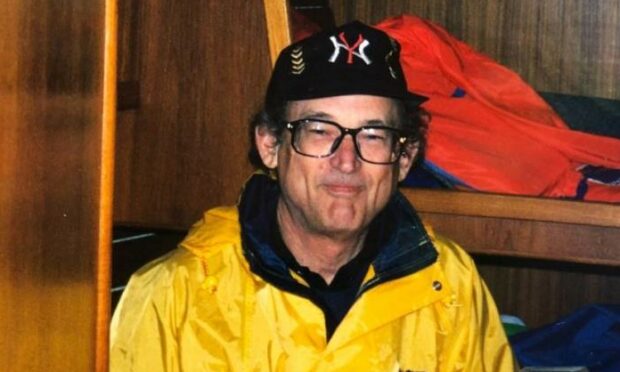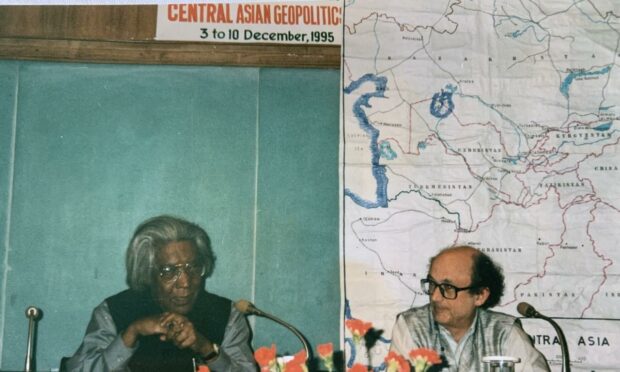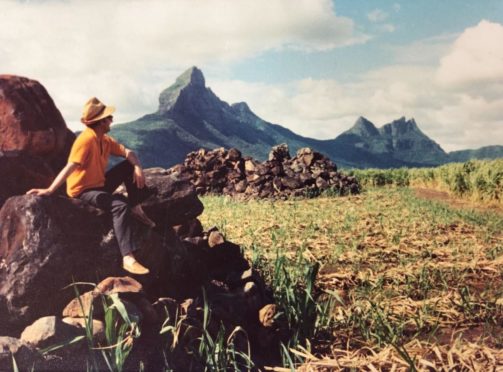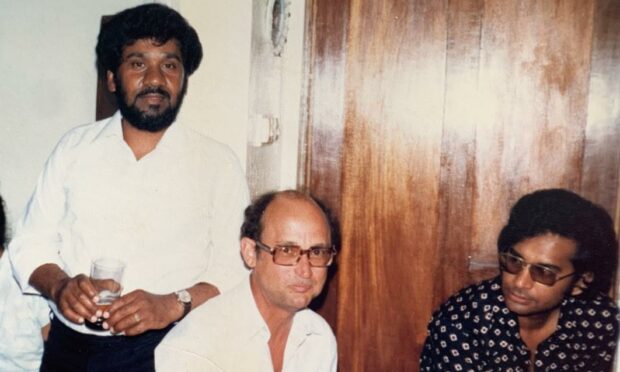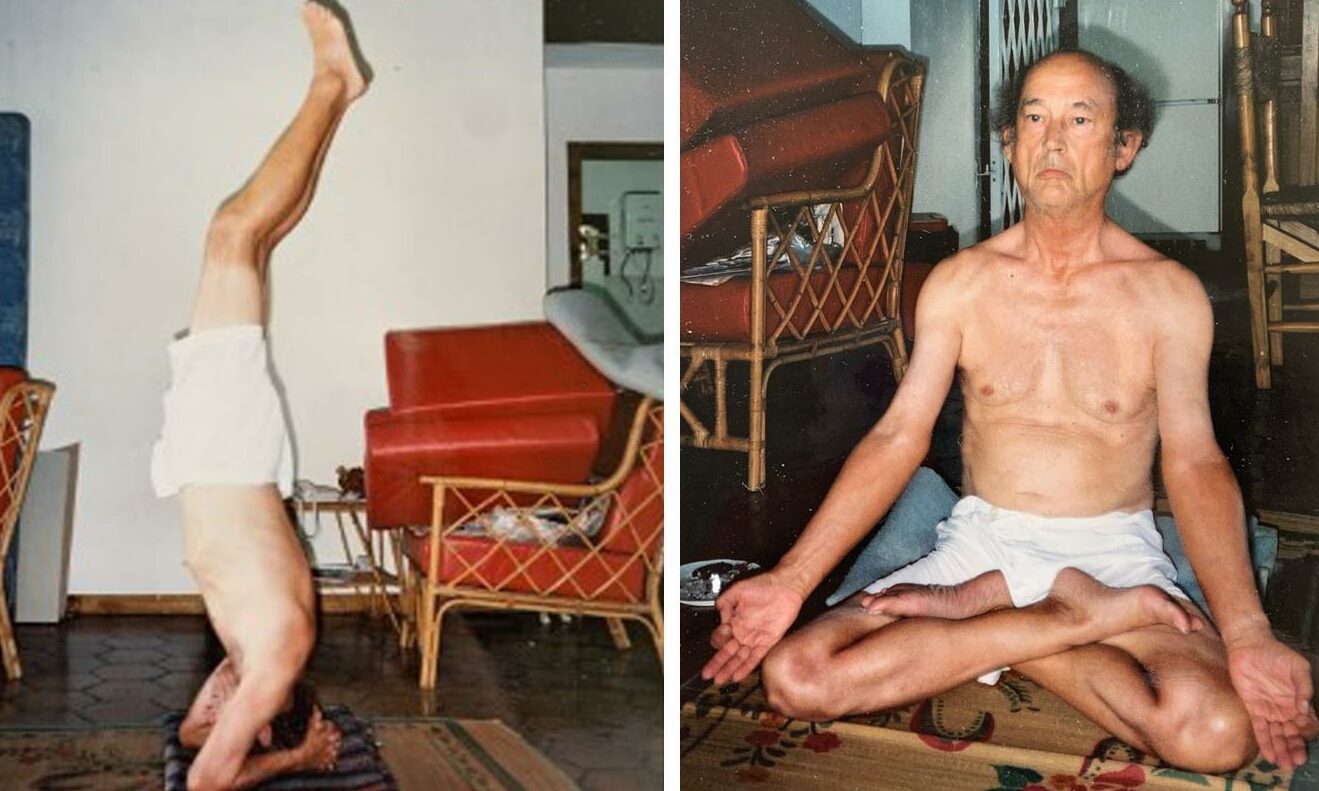They don’t come more paradoxical than Dr Marie Joseph Jean Houbert.
Born to sugar plantation-owning French aristocrats of Indian Ocean island Mauritius, he would choose instead to live his days as a recluse by the North Sea in Bridge of Don.
A political futurist, he predicted the fall of ‘Fortress Europe’ via Middle-Eastern and African migration decades before it ever looked likely, yet lived without modern conveniences, having never owned a microwave oven.
A private person by choice most of the time, he went for curries with peers including a ‘post-Saddam Hussein diplomat who became Arab League Ambassador to the Vatican’.
Beloved by family as an eccentric uncle, he would sporadically visit in a sports car, telling jokes and captivating stories.
But he was also the same deadpan French-accented Aberdeen University lecturer known for his brilliant, if abrupt, confrontational teaching approach.
We look back on the enigmatic life of Professor Jean Houbert, who has died aged 91.
Colonial life
Jean, born in the summer of 1929, was the son of Louis Desire Octave Houbert and his wife, Marie Josephine Jeanne Bouic.
Both born in Mauritius with French parents from the Marseille area, the Roman Catholic family owned and managed sugar plantations.
The couple had five sons: Marc, Jean, Jacques, Ives and Pierre, who died in infancy.
Bernard Houbert, Jean’s nephew, said: “Those were very different days, of course. What went into running a plantation would be difficult for us to think about or discuss now.
“Jean’s ancestors were white, French-born people who came to Mauritius at a time when France and Britain were colonising the islands. Aside from a love of spicy foods, I think the biggest thing he took from his childhood in Mauritius was a love of the sea.”
From the Seine to the Don
Taking to the waves, Jean spent some of his formative years in the Merchant Navy as a first mate before arriving in Paris to study for an economics degree.
He would eventually leave the banks of the Seine in favour of a book-filled cottage near the River Don.
Arriving in the North East where his doctorate in politics and international affairs would afford him a job lecturing at Aberdeen University he later became an honorary fellow.
Many of Jean’s relatives also left Mauritius. While some do remain, others also made Scotland their home.
Though a life of seclusion much of the time was Jean’s preference, he did make rare visits to Edinburgh and surrounding areas.
“He was never one for turning up with a bag of Christmas presents, or even letting us know he was coming. But when he would appear, his generosity and kindness would be shown with the presentation of a raw chicken and a bottle of wine. He always wanted to contribute and we loved it when he did,” added Bernard.
Uncomfortably challenging
Jean’s Aberdeen lecturing role was within the emerging politics and international relations department.
A new discipline, the faculty was based in a small, Victorian terraced house.
Friend and fellow lecturer, Dr Michael Dyer, said: “I met him in 1965 and given Jean’s origins in Mauritius and his French intellectual background, he brought a distinctive, analytical approach to his subject and teaching.
“He was decisive, brilliant but often uncomfortably challenging.”
A former student joked that ‘if he was teaching now he’d likely be cancelled,’ such was the forthright manner in which he taught.
However, in introducing the complexities of Mauritian politics, and his interest in the need for diversity within the Indian-dominated Labour Party, it was clear to those who knew him that, while he could often live with near-to-no human interaction, he did care deeply about the welfare and prosperity of others.
Political Prophet
Jean penned multiple articles and resources during his academic career, and many are still cited around the world.
He also played a significant role in the establishment of the University in Mauritius.
Dr Dyer added: “His awareness of significant migratory pressures on Europe from Africa and the Middle East came about several decades before it ever looked possible.
“He was a prophet in that sense.
“Everyone else was dominated by the Cold War and Fortress Europe, Jean was raising issues of identity, the consequences of decolonisation, uneven population
growth, and the need for a political lens that was much less Euro-American centric.
“That’s commonplace now. It wasn’t then. He was quite brilliant. Very sharp indeed.”
Popadoms and a papal ambassador
One staple break from the very private life Jean cultivated was a regular trip to a Holburn Junction Bengali curry house.
A seasoned regular fixture of a group comprising colleagues and friends that changed over the years, Jean enjoyed eating, and making, the spiced food he grew up with in Mauritius.
Regular attenders of the curry club included Russia aficionado Professor Paul Dukes, Dr Jean Roach and Ghanim al-Shibley, a former diplomat to Iraq who later became Arab League Ambassador to the Vatican.
But public meetings and social gatherings weren’t the norm for Jean.
“He lived in a way that was highly compartmentalised, to the extent that it wasn’t until the weeks leading to his death that we became aware of existing family members, or any other friendships.
“The parts of his life rarely crossed over,” said Dr Dyer, whose wife Elsie, a former student of Jean’s, helped look after him in his final days.
Sports cars and yoga
The seemingly opposing parts of Jean’s character also included a lifelong love of meditation and yogic practice, as well as a penchant for fancy sports cars.
Bernard said: “We’d always love to see what car he would have next. I remember him having an MG and a really nice little Fiat.
“And yet there was a simplicity to his life as well. He cooked from scratch and was doing headstands in yoga into his 80s.”
Tonton Jean, as he was sometimes known, loved to tell stories and in his final days he spoke of his brothers, his trips to the island, the Merchant Navy, and enjoyed catching up on news of his great nieces and nephews.
A thanksgiving service conducted by Rev Louis Kinsey of St Columba’s Church, Bridge of Don, was held in Hazlehead Crematorium.
